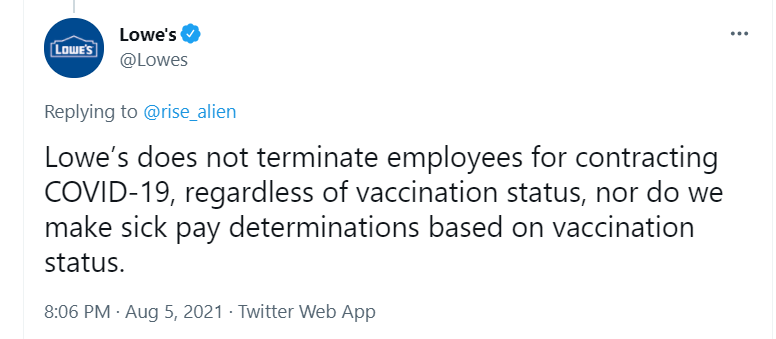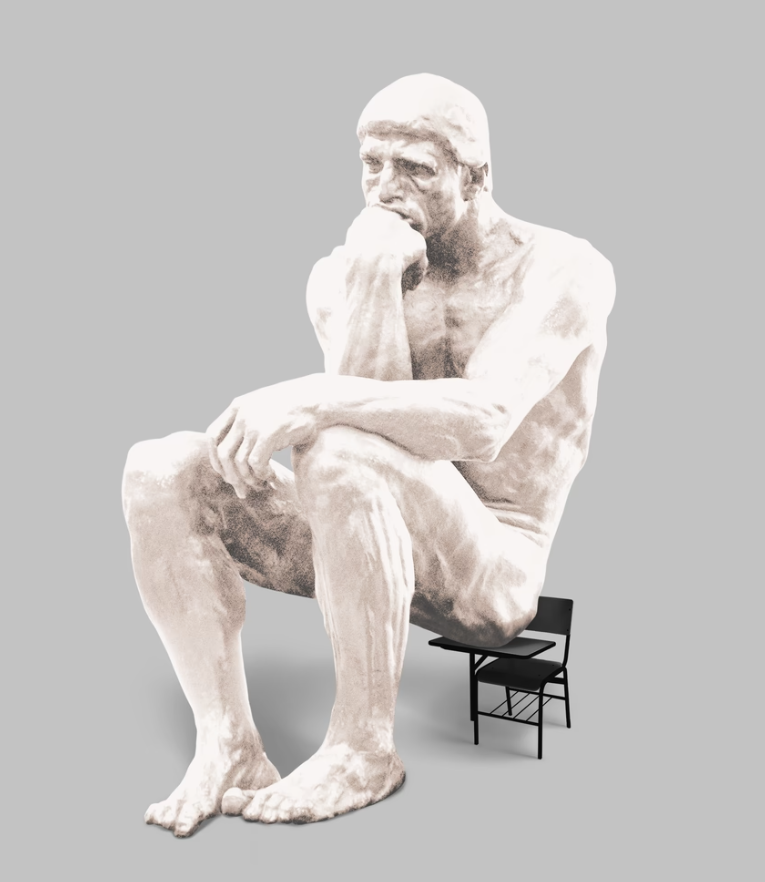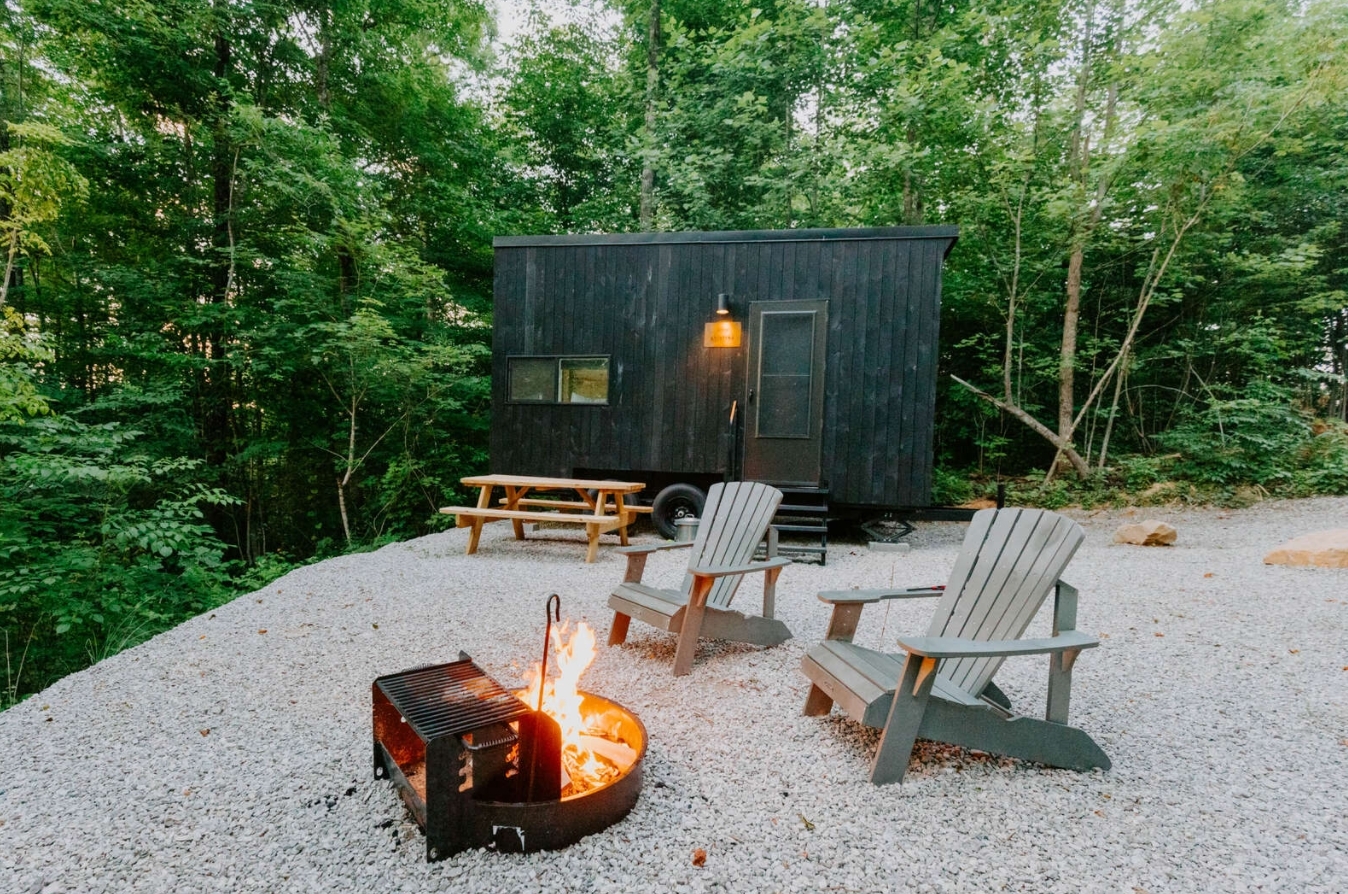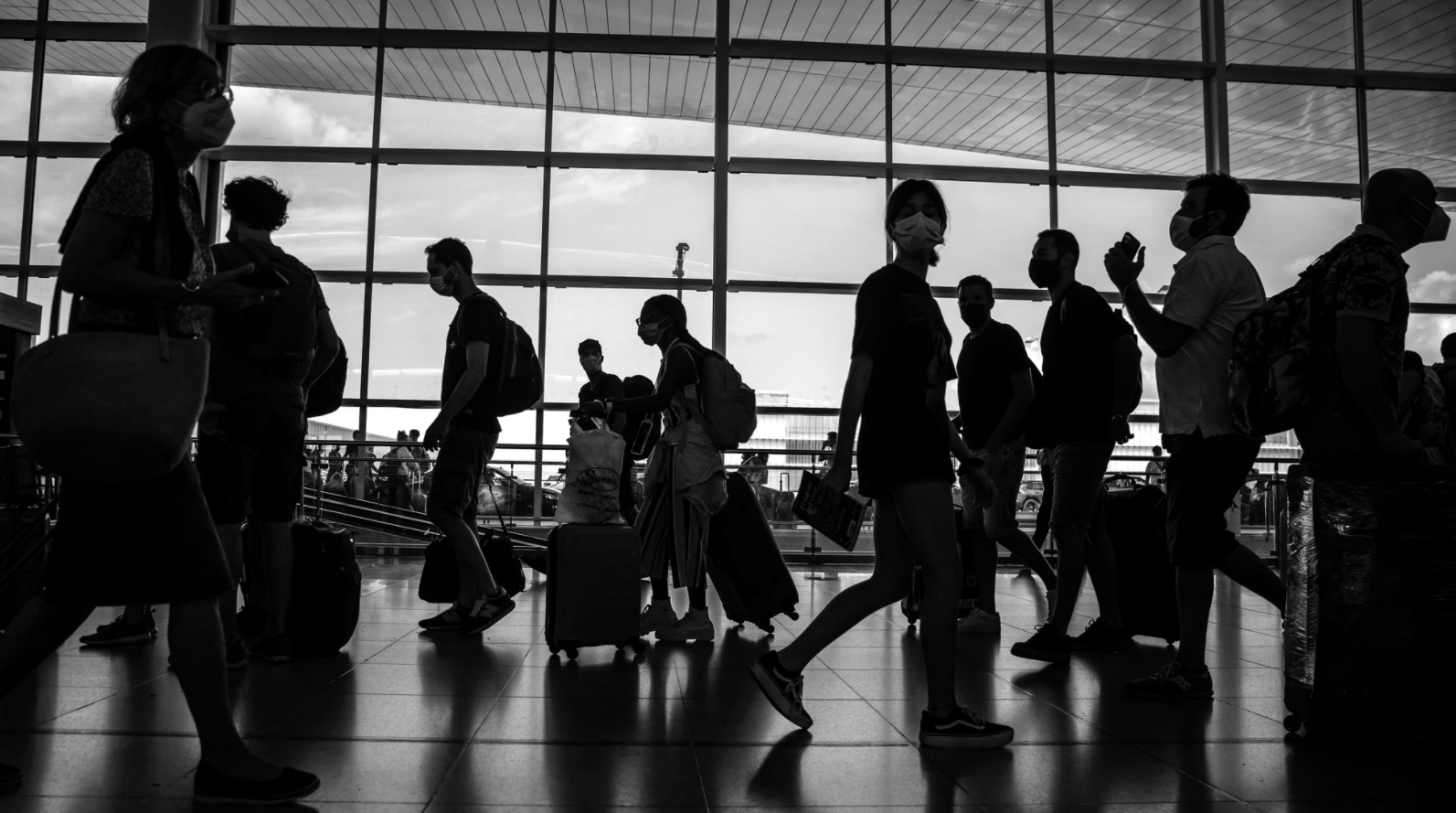Welcome to DU!
The truly grassroots left-of-center political community where regular people, not algorithms, drive the discussions and set the standards.
Join the community:
Create a free account
Support DU (and get rid of ads!):
Become a Star Member
Latest Breaking News
General Discussion
The DU Lounge
All Forums
Issue Forums
Culture Forums
Alliance Forums
Region Forums
Support Forums
Help & Search
Celerity
Celerity's Journal
Celerity's Journal
August 5, 2021
https://www.washingtonpost.com/nation/2021/08/04/cori-bush-eviction-moratorium/
Wind whipped along the steps of the U.S. Capitol on Sunday night as rain pattered, slowly soaking Rep. Cori Bush’s sleeping bag. She struggled to get warm — a familiar feeling, she said. Two decades earlier, the Missouri Democrat, who then lived in her car, spent sleepless nights shivering as she held her two young children in her arms.
This time, Bush chose to brave the elements. For three nights, she slept outside the Capitol, joining activists and fellow Democratic lawmakers protesting the lapse in the federal eviction moratorium, which had protected renters during the pandemic. The move drew national attention, forcing the White House to respond to Bush’s demands to temporarily halt evictions after Congress went on recess without addressing the issue.
On Tuesday, Bush’s campaign succeeded.
The Biden administration announced a 60-day eviction ban for U.S. counties with “substantial and high levels of community transmission,” according to a news release from the Centers for Disease Control and Prevention. With the virus’s delta variant quickly spreading throughout the United States, renters in about 90 percent of the country qualify for the new moratorium, Senate Majority Leader Charles E. Schumer (D-N.Y.) said in a statement. Bush wiped away tears as she shared the news of the renewed protections, which run through Oct. 3, with activists sitting on the Capitol steps. “We just did the work — just by loving folks — to keep millions in their homes,” she said.
Democrats and civil rights activists are praising Bush for leading the five-day protest. Some noted that by evoking her own experiences with housing insecurity, Bush forced fellow lawmakers to understand the realities of eviction. “Thank you to everyone who kept a spotlight on this — particularly [Cori Bush] who understands what it’s like to lose your home and turned passion into action,” Schumer tweeted Tuesday.
https://twitter.com/SenSchumer/status/1422671545642758145
https://twitter.com/AndrewSolender/status/1422680520522145797
https://twitter.com/haleytalbotnbc/status/1422658500568702978
Cori Bush slept outside the Capitol to protest evictions. Democrats credited her for the renewed
protections.https://www.washingtonpost.com/nation/2021/08/04/cori-bush-eviction-moratorium/
Wind whipped along the steps of the U.S. Capitol on Sunday night as rain pattered, slowly soaking Rep. Cori Bush’s sleeping bag. She struggled to get warm — a familiar feeling, she said. Two decades earlier, the Missouri Democrat, who then lived in her car, spent sleepless nights shivering as she held her two young children in her arms.
This time, Bush chose to brave the elements. For three nights, she slept outside the Capitol, joining activists and fellow Democratic lawmakers protesting the lapse in the federal eviction moratorium, which had protected renters during the pandemic. The move drew national attention, forcing the White House to respond to Bush’s demands to temporarily halt evictions after Congress went on recess without addressing the issue.
On Tuesday, Bush’s campaign succeeded.
The Biden administration announced a 60-day eviction ban for U.S. counties with “substantial and high levels of community transmission,” according to a news release from the Centers for Disease Control and Prevention. With the virus’s delta variant quickly spreading throughout the United States, renters in about 90 percent of the country qualify for the new moratorium, Senate Majority Leader Charles E. Schumer (D-N.Y.) said in a statement. Bush wiped away tears as she shared the news of the renewed protections, which run through Oct. 3, with activists sitting on the Capitol steps. “We just did the work — just by loving folks — to keep millions in their homes,” she said.
Democrats and civil rights activists are praising Bush for leading the five-day protest. Some noted that by evoking her own experiences with housing insecurity, Bush forced fellow lawmakers to understand the realities of eviction. “Thank you to everyone who kept a spotlight on this — particularly [Cori Bush] who understands what it’s like to lose your home and turned passion into action,” Schumer tweeted Tuesday.
https://twitter.com/SenSchumer/status/1422671545642758145
https://twitter.com/AndrewSolender/status/1422680520522145797
https://twitter.com/haleytalbotnbc/status/1422658500568702978
August 5, 2021
Lowe’s does not terminate employees for contracting COVID-19, regardless of vaccination status, nor do we make sick pay determinations based on vaccination status.

Fake news alert, Lowes is NOT going to fire unvaxxed workers who catch COVID
https://twitter.com/Lowes/status/1423344564178493444Lowe’s does not terminate employees for contracting COVID-19, regardless of vaccination status, nor do we make sick pay determinations based on vaccination status.

August 5, 2021

Copyright 2021 The Associated Press.
WASHINGTON (AP) — The rare clash this week between the Biden administration and congressional Democrats over a lapsed eviction moratorium could become a blueprint for even larger fights that lie ahead. Finding allies in congressional leadership, a new generation of progressive lawmakers insisted the White House pay attention to them. Their tactics, including a well-publicized, multiday protest on the steps of the U.S. Capitol, ultimately forced the administration to find a new way to keep most tenants in their homes. After largely holding back as President Joe Biden spent his opening months in office courting moderate Democrats — and even some Republicans — many progressives say that deference is over. And with Democrats holding exceedingly narrow margins in Congress, that means the White House may have to pay closer attention to the left wing of the Democratic Party in the coming weeks, especially as the administration’s push for an infrastructure package intensifies. “Hopefully, this has shown not only leadership, the caucus, but our progressive family that when we say we are not going to back down, we don’t back down,” said Rep. Cori Bush, D-Mo., who staged the round-the-clock sit-in on the Capitol steps.
While progressives are feeling emboldened in Washington, there are warning signs. Voters in Ohio on Tuesday rejected a congressional candidate enthusiastically backed by progressive leader Sen. Bernie Sanders. That followed similar setbacks for the left in elections earlier this year in New York City and Virginia. This week’s progressive revolt, however, was distinguished by Bush’s protest. By the time she brought her chair to the Capitol steps on Saturday, the House had already tried — and failed — to pass a quickly drafted bill to prevent a moratorium lapse. House Speaker Nancy Pelosi and Senate Majority Leader Chuck Schumer told Biden a day earlier that Congress would not be able to provide a legislative fix. As Bush began her vigil, people streamed to the steps to join the freshman lawmaker, who spoke passionately of her own time being unhoused, a young mother of two, living out of her Ford Bronco on the streets around what’s now her St. Louis-area congressional district. Her visitors included Sanders, Sen. Elizabeth Warren of Massachusetts and Rep. Alexandria Ocasio-Cortez of New York, whose presence added to the media attention.
A quieter lobbying campaign was also taking place. Over several days, Pelosi rushed into a series of phone calls to Biden and senior White House officials, insisting the administration needed to move unilaterally and focus on a new moratorium directly linked to the public health emergency and the delta variant. “She was saying things like: ‘They can do it, I don’t know what they’re talking about. They are not prevented from doing it,’” Rep. Maxine Waters, D-Calif., the Financial Services Committee chairwoman, said of Pelosi. “We said, ‘Mr. President, you have to step up to the plate,’” Waters said. At the White House, officials were keenly aware that many of those impacted by the moratorium were Biden’s constituents and recognized the need to keep the liberals on the party line.
snip
To this point, Biden’s agenda has focused on working across the aisle with the bipartisan infrastructure deal, including keeping moderate Democratic senators happy. The president has yet to fully tackle progressive priorities like climate change, voting rights and student debt. But the eviction moratorium was an undeniable win for the progressives — and proof of their clout heading into a budget package that is especially central to Biden’s promise to reshape government’s relationship with its citizens. “Today is important because it marks, I hope, a turning point in the way that this White House views progressives,” said Rep. Mondaire Jones, D-N.Y. “We are prepared to leverage our energy and our activism in close coordination with grassroots activists and people all across this country of good conscience to do right by the American people.”
snip
Progressives see blueprint for next fights in eviction win
https://apnews.com/article/joe-biden-health-coronavirus-pandemic-voting-rights-0c8565386d3e8fffcaf88589af843ec5
Copyright 2021 The Associated Press.
WASHINGTON (AP) — The rare clash this week between the Biden administration and congressional Democrats over a lapsed eviction moratorium could become a blueprint for even larger fights that lie ahead. Finding allies in congressional leadership, a new generation of progressive lawmakers insisted the White House pay attention to them. Their tactics, including a well-publicized, multiday protest on the steps of the U.S. Capitol, ultimately forced the administration to find a new way to keep most tenants in their homes. After largely holding back as President Joe Biden spent his opening months in office courting moderate Democrats — and even some Republicans — many progressives say that deference is over. And with Democrats holding exceedingly narrow margins in Congress, that means the White House may have to pay closer attention to the left wing of the Democratic Party in the coming weeks, especially as the administration’s push for an infrastructure package intensifies. “Hopefully, this has shown not only leadership, the caucus, but our progressive family that when we say we are not going to back down, we don’t back down,” said Rep. Cori Bush, D-Mo., who staged the round-the-clock sit-in on the Capitol steps.
While progressives are feeling emboldened in Washington, there are warning signs. Voters in Ohio on Tuesday rejected a congressional candidate enthusiastically backed by progressive leader Sen. Bernie Sanders. That followed similar setbacks for the left in elections earlier this year in New York City and Virginia. This week’s progressive revolt, however, was distinguished by Bush’s protest. By the time she brought her chair to the Capitol steps on Saturday, the House had already tried — and failed — to pass a quickly drafted bill to prevent a moratorium lapse. House Speaker Nancy Pelosi and Senate Majority Leader Chuck Schumer told Biden a day earlier that Congress would not be able to provide a legislative fix. As Bush began her vigil, people streamed to the steps to join the freshman lawmaker, who spoke passionately of her own time being unhoused, a young mother of two, living out of her Ford Bronco on the streets around what’s now her St. Louis-area congressional district. Her visitors included Sanders, Sen. Elizabeth Warren of Massachusetts and Rep. Alexandria Ocasio-Cortez of New York, whose presence added to the media attention.
A quieter lobbying campaign was also taking place. Over several days, Pelosi rushed into a series of phone calls to Biden and senior White House officials, insisting the administration needed to move unilaterally and focus on a new moratorium directly linked to the public health emergency and the delta variant. “She was saying things like: ‘They can do it, I don’t know what they’re talking about. They are not prevented from doing it,’” Rep. Maxine Waters, D-Calif., the Financial Services Committee chairwoman, said of Pelosi. “We said, ‘Mr. President, you have to step up to the plate,’” Waters said. At the White House, officials were keenly aware that many of those impacted by the moratorium were Biden’s constituents and recognized the need to keep the liberals on the party line.
snip
To this point, Biden’s agenda has focused on working across the aisle with the bipartisan infrastructure deal, including keeping moderate Democratic senators happy. The president has yet to fully tackle progressive priorities like climate change, voting rights and student debt. But the eviction moratorium was an undeniable win for the progressives — and proof of their clout heading into a budget package that is especially central to Biden’s promise to reshape government’s relationship with its citizens. “Today is important because it marks, I hope, a turning point in the way that this White House views progressives,” said Rep. Mondaire Jones, D-N.Y. “We are prepared to leverage our energy and our activism in close coordination with grassroots activists and people all across this country of good conscience to do right by the American people.”
snip
August 5, 2021
https://www.fool.com/the-ascent/personal-finance/articles/quitting-a-job-due-to-vaccine-requirements-you-wont-be-eligible-for-unemployment/

At this point, many people have been working remotely for a solid year and a half. But many companies are getting tired of that arrangement and are eager to bring workers back to the office in some capacity. Unfortunately, the Delta variant is throwing a wrench in the works. With COVID-19 cases soaring once again, employers need to take steps to protect their employees if they're going to require them to show up to an actual workplace. And to that end, many are requiring that employees get a COVID-19 vaccine before coming back to work. At first glance, that may seem like an infringement on individual rights. But actually, companies do have the right to mandate vaccines. And if you refuse to get one and are decide to quit your job or are terminated because of that, you may be in for a financial shock, because you won't be eligible for unemployment benefits.
Violating company policy means you're out of luck
To qualify for unemployment benefits, you'll need to have lost your job through no fault of your own. If your company struggles financially and has to downsize its staff, for example, that's a valid reason for getting unemployment. On the other hand, if you're fired from your job for consistently showing up late, that's a scenario where you're likely to be denied unemployment benefits. Similarly, any time you violate a company policy, it's grounds for termination. And if your company's policy is to require COVID-19 vaccines, and you don't get one, then you could be terminated and ineligible to receive any unemployment money.
The same holds true if you quit your job because you don't want to get vaccinated. With that said, companies that are requiring vaccines generally need to make exceptions for employees who can't get a jab for medical or religious reasons. In that situation, the burden will be on you to prove that you're exempt from your company's general policy. In that scenario, if you're terminated, you may have a right to unemployment benefits. You may also have a wrongful termination lawsuit on your hands. So in that case, speaking to an employment lawyer could be a good thing to do.
Know the rules
Unemployment benefits can be a financial lifeline when you lose your job, especially if you don't have any savings to fall back on. But if you refuse to get vaccinated and that violates your company's rules, you should be prepared for your unemployment claim to be denied. If your company is mandating vaccines and you really don't want to get one, but you also don't qualify for an exemption, then you might consider trying to negotiate a different arrangement with your employer. You may be given permission to work from home, if not permanently, then at least for the time being while the current outbreak is raging. Getting vaccinated is a sensitive issue and one that a lot of people feel strongly about. It pays to speak up for yourself if your company's vaccination policy doesn't align with your personal comfort level.
snip
Quitting a Job Due to Vaccine Requirements? You Won't Be Eligible for Unemployment
As more companies mandate vaccines, it's important that employees understand the implications of not getting one.https://www.fool.com/the-ascent/personal-finance/articles/quitting-a-job-due-to-vaccine-requirements-you-wont-be-eligible-for-unemployment/

At this point, many people have been working remotely for a solid year and a half. But many companies are getting tired of that arrangement and are eager to bring workers back to the office in some capacity. Unfortunately, the Delta variant is throwing a wrench in the works. With COVID-19 cases soaring once again, employers need to take steps to protect their employees if they're going to require them to show up to an actual workplace. And to that end, many are requiring that employees get a COVID-19 vaccine before coming back to work. At first glance, that may seem like an infringement on individual rights. But actually, companies do have the right to mandate vaccines. And if you refuse to get one and are decide to quit your job or are terminated because of that, you may be in for a financial shock, because you won't be eligible for unemployment benefits.
Violating company policy means you're out of luck
To qualify for unemployment benefits, you'll need to have lost your job through no fault of your own. If your company struggles financially and has to downsize its staff, for example, that's a valid reason for getting unemployment. On the other hand, if you're fired from your job for consistently showing up late, that's a scenario where you're likely to be denied unemployment benefits. Similarly, any time you violate a company policy, it's grounds for termination. And if your company's policy is to require COVID-19 vaccines, and you don't get one, then you could be terminated and ineligible to receive any unemployment money.
The same holds true if you quit your job because you don't want to get vaccinated. With that said, companies that are requiring vaccines generally need to make exceptions for employees who can't get a jab for medical or religious reasons. In that situation, the burden will be on you to prove that you're exempt from your company's general policy. In that scenario, if you're terminated, you may have a right to unemployment benefits. You may also have a wrongful termination lawsuit on your hands. So in that case, speaking to an employment lawyer could be a good thing to do.
Know the rules
Unemployment benefits can be a financial lifeline when you lose your job, especially if you don't have any savings to fall back on. But if you refuse to get vaccinated and that violates your company's rules, you should be prepared for your unemployment claim to be denied. If your company is mandating vaccines and you really don't want to get one, but you also don't qualify for an exemption, then you might consider trying to negotiate a different arrangement with your employer. You may be given permission to work from home, if not permanently, then at least for the time being while the current outbreak is raging. Getting vaccinated is a sensitive issue and one that a lot of people feel strongly about. It pays to speak up for yourself if your company's vaccination policy doesn't align with your personal comfort level.
snip
August 5, 2021
https://www.usnews.com/news/politics/articles/2021-08-04/ron-desantis-plays-disaster-politics-as-florida-again-reels-from-coronavirus

Disaster politics is part of the job for Florida politicians, and Gov. Ron DeSantis has had his share, responding to hurricane season and meeting with family of those killed in the Surfside condo collapse. And typically, Americans tend to rally around their leaders during a disaster. But the coronavirus has added an unusually political wrinkle for a governor and potential presidential candidate whose state is now experiencing a dangerous spike in pandemic-related infections and hospitalizations. A new poll released Wednesday showed DeSantis underwater on his approval rating, with 43.7% approving of his performance as governor and 48.5% disapproving, according to a StPetePolls survey of 3,952 Floridians. Surprising pollster Matt Florell, the poll had DeSantis narrowly losing re-election next year to one potential Democratic contender – former Gov. Charlie Crist – with 45.3% favouring Crist to 43.8% who want DeSantis re-elected. And by a 2-to-1 margin – 62% to 31.9% – Floridians believe schoolchildren should be required to wear masks when they return to the classroom in two weeks, a strong rebuke to DeSantis and his recent executive order banning school districts from imposing mask mandates.
DeSantis has been considered the favourite for re-election next year, in part because he is very popular in his own party and in part because Democrats have struggled for years in state-wide races in Florida. His determination to keep Florida commerce, schools and public spaces open during the pandemic brought criticism from some but played well with business owners and parents who didn't want closed beach bars and schools. Earlier in the summer, it looked like that tactic was paying off: Both cases of infection and hospitalizations from the virus were trending down, and DeSantis defenders needled those who had argued for tighter restrictions, saying the Florida governor had been proven correct. But in the past couple of weeks, the health picture has darkened quickly in the Sunshine State. Cases and deaths are up, and hospitals are at capacity with COVID-19 patients, forcing them to cancel elective surgeries and import nurses from other states to staff the higher caseload.
Unlike other disasters – where the public is more or less united in blaming nature, but less so, the elected officials who manage the rebuilding – the virus presents a bigger risk for DeSantis as he seeks to keep his conservative base happy without having the public health crisis spiral out of control. In other disasters, "he's done the right thing. He's appeared to be empathetically talking with grieving families, picking up a rock and some steel," says J. Edwin Benton, a political science professor at the University of South Florida. "There's a lot to be said for that kind of politics everywhere. But is it going to boomerang on him, on the coronavirus?" President Joe Biden – who just weeks previous had a chummy meeting with DeSantis and others while visiting Surfside and meeting with families – delivered a tougher message earlier this week to DeSantis and other governors banning mask mandates. "I say to these governors: Please help. But if you aren't going to help, at least get out of the way," Biden said at the White House on Tuesday. "The people are trying to do the right thing. Use your power to save lives."
DeSantis shot back on Wednesday, veering off during a speech on the Florida economy to talk about coronavirus politics. "Joe Biden has taken to himself to single out Florida over COVID-19," DeSantis said in Panama City. Biden is "importing more virus from around the world" by allowing immigrants to enter the country, the Florida governor said. It was a message meant to appeal to an important constituency – the Donald Trump loyalists who don't trust the government and don't want to be told to wear a mask or get a vaccine, though DeSantis more recently has encouraged people to be vaccinated. His words also touch a nerve in a wider group of voters who are simply tired of having their lives changed so dramatically by the pandemic. "It's a smattering of folks," ranging from those who still think COVID-19 is a hoax or think only old people get the virus or just resent government telling them what to do, says Michael Binder, faculty director of the Public Opinion Research Lab at the University of North Florida. But with hospitalizations rising dramatically, "I think he's got some problems coming his way," Binder adds.
snip
Ron DeSantis Plays Disaster Politics as Florida Again Reels From Coronavirus
The coronavirus has added an unusually political wrinkle for a governor and potential presidential candidate whose state is experiencing a dangerous spike in the pandemic.https://www.usnews.com/news/politics/articles/2021-08-04/ron-desantis-plays-disaster-politics-as-florida-again-reels-from-coronavirus

Disaster politics is part of the job for Florida politicians, and Gov. Ron DeSantis has had his share, responding to hurricane season and meeting with family of those killed in the Surfside condo collapse. And typically, Americans tend to rally around their leaders during a disaster. But the coronavirus has added an unusually political wrinkle for a governor and potential presidential candidate whose state is now experiencing a dangerous spike in pandemic-related infections and hospitalizations. A new poll released Wednesday showed DeSantis underwater on his approval rating, with 43.7% approving of his performance as governor and 48.5% disapproving, according to a StPetePolls survey of 3,952 Floridians. Surprising pollster Matt Florell, the poll had DeSantis narrowly losing re-election next year to one potential Democratic contender – former Gov. Charlie Crist – with 45.3% favouring Crist to 43.8% who want DeSantis re-elected. And by a 2-to-1 margin – 62% to 31.9% – Floridians believe schoolchildren should be required to wear masks when they return to the classroom in two weeks, a strong rebuke to DeSantis and his recent executive order banning school districts from imposing mask mandates.
DeSantis has been considered the favourite for re-election next year, in part because he is very popular in his own party and in part because Democrats have struggled for years in state-wide races in Florida. His determination to keep Florida commerce, schools and public spaces open during the pandemic brought criticism from some but played well with business owners and parents who didn't want closed beach bars and schools. Earlier in the summer, it looked like that tactic was paying off: Both cases of infection and hospitalizations from the virus were trending down, and DeSantis defenders needled those who had argued for tighter restrictions, saying the Florida governor had been proven correct. But in the past couple of weeks, the health picture has darkened quickly in the Sunshine State. Cases and deaths are up, and hospitals are at capacity with COVID-19 patients, forcing them to cancel elective surgeries and import nurses from other states to staff the higher caseload.
Unlike other disasters – where the public is more or less united in blaming nature, but less so, the elected officials who manage the rebuilding – the virus presents a bigger risk for DeSantis as he seeks to keep his conservative base happy without having the public health crisis spiral out of control. In other disasters, "he's done the right thing. He's appeared to be empathetically talking with grieving families, picking up a rock and some steel," says J. Edwin Benton, a political science professor at the University of South Florida. "There's a lot to be said for that kind of politics everywhere. But is it going to boomerang on him, on the coronavirus?" President Joe Biden – who just weeks previous had a chummy meeting with DeSantis and others while visiting Surfside and meeting with families – delivered a tougher message earlier this week to DeSantis and other governors banning mask mandates. "I say to these governors: Please help. But if you aren't going to help, at least get out of the way," Biden said at the White House on Tuesday. "The people are trying to do the right thing. Use your power to save lives."
DeSantis shot back on Wednesday, veering off during a speech on the Florida economy to talk about coronavirus politics. "Joe Biden has taken to himself to single out Florida over COVID-19," DeSantis said in Panama City. Biden is "importing more virus from around the world" by allowing immigrants to enter the country, the Florida governor said. It was a message meant to appeal to an important constituency – the Donald Trump loyalists who don't trust the government and don't want to be told to wear a mask or get a vaccine, though DeSantis more recently has encouraged people to be vaccinated. His words also touch a nerve in a wider group of voters who are simply tired of having their lives changed so dramatically by the pandemic. "It's a smattering of folks," ranging from those who still think COVID-19 is a hoax or think only old people get the virus or just resent government telling them what to do, says Michael Binder, faculty director of the Public Opinion Research Lab at the University of North Florida. But with hospitalizations rising dramatically, "I think he's got some problems coming his way," Binder adds.
snip
August 4, 2021
https://www.theatlantic.com/magazine/archive/2021/09/martin-learning-in-public-diangelo-nice-racism/619497/

Last march, just before we knew the pandemic had arrived, my husband and I enrolled our son in a progressive private school in Pasadena, California. He was 14 and, except for a year abroad, had been attending public schools his whole life. Private was my idea, the gentle kind of hippie school I’d sometimes wished I could attend during my ragtag childhood in Boston-area public schools amid the desegregation turmoil of the 1970s and ’80s. I wanted smaller class sizes, a more nurturing environment for my artsy, bookish child. I did notice that—despite having diversity in its mission statement—the school was extremely white. My son noticed too. As he gushed about the school after his visit, he mentioned that he hadn’t seen a single other kid of African descent. He brushed it off. It didn’t matter. I did worry that we might be making a mistake. But I figured we could make up for the lack; after all, not a day went by in our household that we didn’t discuss race, joke about race, fume about race. My child knew he was Black and he knew his history and … he’d be fine.
Weeks after we sent in our tuition deposit, the pandemic hit, followed by the summer of George Floyd. The school where my son was headed was no exception to the grand awakening of white America that followed, the confrontation with the absurd lie of post-racial America. The head of school scrambled to address an anonymous forum on Instagram recounting “experiences with the racism dominating our school,” as what one administrator called its racial reckoning began. Over the summer, my son was assigned Ibram X. Kendi and Jason Reynolds’s Stamped: Racism, Antiracism, and You and Angie Thomas’s The Hate U Give. When the fall semester began, no ordinary clubs like chess and debate awaited; my son’s sole opportunity to get to know other students was in affinity groups. That meant Zooming with the catchall category of BIPOC students on Fridays to talk about their racial trauma in the majority-white school he hadn’t yet set foot inside. (BIPOC, or “Black, Indigenous, and people of colour,” was unfamiliar to my son; in his public school, he had described his peers by specific ethnic backgrounds—Korean, Iranian, Jewish, Mexican, Black.)
He made us laugh with stories about the school at the dinner table. His irony and awareness were intact. But his isolation in the new school, under quarantine, was acute; he missed his friends, who were all going to the local public high school, albeit on Zoom. How could he meet kids who shared his interests in graphic novels, film, debate, comedy, politics? I expressed my concern and was told that our son would surely soon make some friends through that weekly BIPOC affinity group. This year of racial reckoning, one school official said, was about healing. At every meeting I attended, I kept bringing up the importance of recruiting more Black families. Administrators, almost all of them white, kept emphasizing the need for more outside DEI (diversity, equity, and inclusion) specialists to heal the school’s racial trauma.
I thought of our experience at the school recently as I read Courtney E. Martin’s memoir about trying to live a “White moral life.” In Learning in Public: Lessons for a Racially Divided America From My Daughter’s School she shares her experience of deciding to send her kindergartner to the majority-Black and academically “failing” neighbourhood public school she’s zoned for in Oakland, California. Martin is a writer on social-justice issues who is in demand on the college-lecture circuit. In spirit, her book is an extension of her popular Substack newsletter, called The Examined Family, written “for people who get all twisted up inside about the brokenness of the world, and wonder how to actually live in it, loving and humble, but brave as hell.” In other words, her memoir is aimed at fellow upper-middle-class white progressives eager to confront their “white fragility,” the phrase coined a decade ago by the white educator Robin DiAngelo, whose 2018 book by that title (subtitled Why It’s So Hard for White People to Talk About Racism) is the bible of many of those DEI specialists I kept hearing about.
snip
Robin DiAngelo and the Problem With Anti-racist Self-Help
What two new books reveal about the white progressive pursuit of racial virtuehttps://www.theatlantic.com/magazine/archive/2021/09/martin-learning-in-public-diangelo-nice-racism/619497/

Last march, just before we knew the pandemic had arrived, my husband and I enrolled our son in a progressive private school in Pasadena, California. He was 14 and, except for a year abroad, had been attending public schools his whole life. Private was my idea, the gentle kind of hippie school I’d sometimes wished I could attend during my ragtag childhood in Boston-area public schools amid the desegregation turmoil of the 1970s and ’80s. I wanted smaller class sizes, a more nurturing environment for my artsy, bookish child. I did notice that—despite having diversity in its mission statement—the school was extremely white. My son noticed too. As he gushed about the school after his visit, he mentioned that he hadn’t seen a single other kid of African descent. He brushed it off. It didn’t matter. I did worry that we might be making a mistake. But I figured we could make up for the lack; after all, not a day went by in our household that we didn’t discuss race, joke about race, fume about race. My child knew he was Black and he knew his history and … he’d be fine.
Weeks after we sent in our tuition deposit, the pandemic hit, followed by the summer of George Floyd. The school where my son was headed was no exception to the grand awakening of white America that followed, the confrontation with the absurd lie of post-racial America. The head of school scrambled to address an anonymous forum on Instagram recounting “experiences with the racism dominating our school,” as what one administrator called its racial reckoning began. Over the summer, my son was assigned Ibram X. Kendi and Jason Reynolds’s Stamped: Racism, Antiracism, and You and Angie Thomas’s The Hate U Give. When the fall semester began, no ordinary clubs like chess and debate awaited; my son’s sole opportunity to get to know other students was in affinity groups. That meant Zooming with the catchall category of BIPOC students on Fridays to talk about their racial trauma in the majority-white school he hadn’t yet set foot inside. (BIPOC, or “Black, Indigenous, and people of colour,” was unfamiliar to my son; in his public school, he had described his peers by specific ethnic backgrounds—Korean, Iranian, Jewish, Mexican, Black.)
He made us laugh with stories about the school at the dinner table. His irony and awareness were intact. But his isolation in the new school, under quarantine, was acute; he missed his friends, who were all going to the local public high school, albeit on Zoom. How could he meet kids who shared his interests in graphic novels, film, debate, comedy, politics? I expressed my concern and was told that our son would surely soon make some friends through that weekly BIPOC affinity group. This year of racial reckoning, one school official said, was about healing. At every meeting I attended, I kept bringing up the importance of recruiting more Black families. Administrators, almost all of them white, kept emphasizing the need for more outside DEI (diversity, equity, and inclusion) specialists to heal the school’s racial trauma.
I thought of our experience at the school recently as I read Courtney E. Martin’s memoir about trying to live a “White moral life.” In Learning in Public: Lessons for a Racially Divided America From My Daughter’s School she shares her experience of deciding to send her kindergartner to the majority-Black and academically “failing” neighbourhood public school she’s zoned for in Oakland, California. Martin is a writer on social-justice issues who is in demand on the college-lecture circuit. In spirit, her book is an extension of her popular Substack newsletter, called The Examined Family, written “for people who get all twisted up inside about the brokenness of the world, and wonder how to actually live in it, loving and humble, but brave as hell.” In other words, her memoir is aimed at fellow upper-middle-class white progressives eager to confront their “white fragility,” the phrase coined a decade ago by the white educator Robin DiAngelo, whose 2018 book by that title (subtitled Why It’s So Hard for White People to Talk About Racism) is the bible of many of those DEI specialists I kept hearing about.
snip
August 4, 2021
https://www.thrillist.com/events/san-diego/things-to-do-in-san-diego-this-weekend

This weekend, we say welcome back to some of our favorite festivals! ArtWalk@Liberty Station returns for the first time since 2019, there’s a tiki festival on Shelter Island, and BeerX San Diego is happening at Belmont Park. Plus, a festival for your pup, an aquafarm tour and a pop-up swap meet are all on the docket. Tuck a mask in your pocket, grab your sunglasses, and your best buds—here’s everything you can eat, drink, and do in San Diego this weekend:



snip
9 Actually Fun Things to Do in San Diego This Weekend
Celebrate National Oyster Day, a fine arts festival, and plenty of beer!https://www.thrillist.com/events/san-diego/things-to-do-in-san-diego-this-weekend

This weekend, we say welcome back to some of our favorite festivals! ArtWalk@Liberty Station returns for the first time since 2019, there’s a tiki festival on Shelter Island, and BeerX San Diego is happening at Belmont Park. Plus, a festival for your pup, an aquafarm tour and a pop-up swap meet are all on the docket. Tuck a mask in your pocket, grab your sunglasses, and your best buds—here’s everything you can eat, drink, and do in San Diego this weekend:



snip
August 4, 2021
Getaway House lets you book a cosy and comfortable tiny home in the woods that’ll have you questioning why you're still renting in the city
https://www.thrillist.com/shopping/nation/what-is-getaway-house

I wasn't exactly sure of where I was going. I knew it'd be in the Eastern Catskills and I knew it'd be about a two hour drive from my apartment in Brooklyn. I knew I'd be driving myself to a small cabin with hot water, cold A/C, and a comfy bed in the middle of the woods. I knew I'd be without Wi-Fi and have limited cell service. Lastly, I knew I'd be in for an adventure. This is the promise of a Getaway House—a cosy yet comfortable cabin set amongst sprawling trees, rolling mountains, and limited neighbours. A welcome respite for someone like me who can literally hear my neighbour rehearse their lines for an independent film which may or may not end up at Cannes (enunciation goes a long way, Patrick).
I should mention I went to my Getaway House solo. I don't mind traveling alone and the ex I texted had "a lot going on" that weekend. I wasn't deterred and even thought I'd see other solo travellers on the property. Maybe make a new pal. I was sorely mistaken. The site was littered with couples, taking walks hand in hand, laughing in the distance over a crackling fire, casting friendly yet apprehensive glances over at the bearded guy singing The Allman Brothers in a tank top stoking a fire with a beer in hand (me, I was that guy). This is all to say that Getaway Houses seem to be great for couples, but I thoroughly enjoyed my unaccompanied stay.
Let's get into how the whole thing works. Once you book, you'll get your info. This includes address, cabin assignment, and key code to enter. You won't need to bring much, the cabin has you set with clean towels, some toiletries, a shower with hot water, A/C & heat, cookware & drinkware, and even a fire pit with wood & firestarter. If you want to purchase extra provisions like coffee, tea, food, and more wood, you can for a nominal fee. I'd highly recommend bringing rain gear, bug spray, good shoes, and some cosy layers—the weather in the mountains changes more than CBS's line-up of evening sitcoms.
You'll also want to bring a toothbrush & toothpaste, any can't-live-without items, a hammock (there are so many great hammock spots), and extra water—especially if you plan to go hiking. I was able to pack everything into a large backpack and it was more than enough for the weekend. Now, the type of person you are will guide your Getaway experience. Are you looking to simply sit around in the woods and catch up on a book? Do you want to explore the local towns and check out the food & drink scene? Do you want to hike the tallest mountain in the area and yell from the peak "IS THAT ALL YOU'VE GOT?!" I wanted to do all of these things. So I did, and it kicked ass.

snip
You've Heard of Camping... You've Heard of Glamping... But What About 'Getaway Houses'
Don't Like Camping? Try a Getaway House InsteadGetaway House lets you book a cosy and comfortable tiny home in the woods that’ll have you questioning why you're still renting in the city
https://www.thrillist.com/shopping/nation/what-is-getaway-house

I wasn't exactly sure of where I was going. I knew it'd be in the Eastern Catskills and I knew it'd be about a two hour drive from my apartment in Brooklyn. I knew I'd be driving myself to a small cabin with hot water, cold A/C, and a comfy bed in the middle of the woods. I knew I'd be without Wi-Fi and have limited cell service. Lastly, I knew I'd be in for an adventure. This is the promise of a Getaway House—a cosy yet comfortable cabin set amongst sprawling trees, rolling mountains, and limited neighbours. A welcome respite for someone like me who can literally hear my neighbour rehearse their lines for an independent film which may or may not end up at Cannes (enunciation goes a long way, Patrick).
I should mention I went to my Getaway House solo. I don't mind traveling alone and the ex I texted had "a lot going on" that weekend. I wasn't deterred and even thought I'd see other solo travellers on the property. Maybe make a new pal. I was sorely mistaken. The site was littered with couples, taking walks hand in hand, laughing in the distance over a crackling fire, casting friendly yet apprehensive glances over at the bearded guy singing The Allman Brothers in a tank top stoking a fire with a beer in hand (me, I was that guy). This is all to say that Getaway Houses seem to be great for couples, but I thoroughly enjoyed my unaccompanied stay.
Let's get into how the whole thing works. Once you book, you'll get your info. This includes address, cabin assignment, and key code to enter. You won't need to bring much, the cabin has you set with clean towels, some toiletries, a shower with hot water, A/C & heat, cookware & drinkware, and even a fire pit with wood & firestarter. If you want to purchase extra provisions like coffee, tea, food, and more wood, you can for a nominal fee. I'd highly recommend bringing rain gear, bug spray, good shoes, and some cosy layers—the weather in the mountains changes more than CBS's line-up of evening sitcoms.
You'll also want to bring a toothbrush & toothpaste, any can't-live-without items, a hammock (there are so many great hammock spots), and extra water—especially if you plan to go hiking. I was able to pack everything into a large backpack and it was more than enough for the weekend. Now, the type of person you are will guide your Getaway experience. Are you looking to simply sit around in the woods and catch up on a book? Do you want to explore the local towns and check out the food & drink scene? Do you want to hike the tallest mountain in the area and yell from the peak "IS THAT ALL YOU'VE GOT?!" I wanted to do all of these things. So I did, and it kicked ass.

snip
August 4, 2021
https://www.theatlantic.com/ideas/archive/2021/08/unvaccinated-flight-vaccine-tsa-mandate/619643/

About the author: Juliette Kayyem, a former assistant secretary for homeland security under President Barack Obama, is the faculty chair of the homeland-security program at Harvard’s Kennedy School of Government.
When you go to the airport, you see two kinds of security rules. Some apply equally to everyone; no one can carry weapons through the TSA checkpoint. But other protocols divide passengers into categories according to how much of a threat the government thinks they pose. If you submit to heightened scrutiny in advance, TSA PreCheck lets you go through security without taking off your shoes; a no-fly list keeps certain people off the plane entirely. Not everyone poses an equal threat. Rifling through the bags of every business traveller and patting down every pre-schooler and octogenarian would waste the TSA’s time and needlessly burden many passengers. The same principle applies to limiting the spread of the coronavirus. The number of COVID-19 cases keeps growing, even though remarkably safe, effective vaccines are widely available, at least to adults. Many public agencies are responding by re-imposing masking rules on everyone. But at this stage of the pandemic, tougher universal restrictions are not the solution to continuing viral spread. While flying, vaccinated people should no longer carry the burden for unvaccinated people.
The White House has rejected a nationwide vaccine mandate—a sweeping suggestion that the Biden administration could not easily enact if it wanted to—but a no-fly list for unvaccinated adults is an obvious step that the federal government should take. It will help limit the risk of transmission at destinations where unvaccinated people travel—and, by setting norms that restrict certain privileges to vaccinated people, will also help raise the stagnant vaccination rates that are keeping both the economy and society from fully recovering. Flying is not a right, and the case for restricting it to vaccinated people is straightforward: The federal government is the sole entity that can regulate the terms and conditions of airline safety. And although air-filtration systems and mask requirements make transmission of the coronavirus unlikely during any given passenger flight, infected people can spread it when they leave the airport and take off their mask. The whole point of international-travel bans is to curb infections in the destination country; to protect itself, the United States still has many such restrictions in place. Beyond limiting the virus’s flow from hot spots to the rest of the country, allowing only vaccinated people on domestic flights will change minds, too.
Polls suggest that vaccine holdouts have a variety of motivations: genuine concerns about side effects; scepticism of shots not yet fully approved by the FDA; a general aversion to vaccines; a desire to stick it to the libs; a reluctance to decide—even now. In a recent New York Times and Kaiser Family Foundation poll, 46 percent of unvaccinated people who consider themselves in the “wait and see” category disclosed that they would stop waiting if they could get a shot from their personal physician. Forty-four percent agreed that the FDA’s full approval of the vaccines would motivate them. And 41 percent said that a prohibition on airline travel would get them closer to their shots. Tellingly, 11 percent of those adamantly opposed to vaccination would also be motivated by a travel ban—a larger effect for these respondents than full FDA approval or the ability to get vaccinated at their doctor’s office would have. More than another recitation of statistics about vaccines’ benefits or yet another appeal to the common good, the deprivation of movement will win over doubters. Some unvaccinated Americans in areas where vaccination seekers face scorn among their peer group may even be happy to have an excuse to protect themselves.
The public debate about making vaccination a precondition for travel, employment, and other activities has described this approach as vaccine mandates, a term that, to conservative critics, suggests that unvaccinated people are being ordered around arbitrarily. What is actually going on, mostly, is that institutions are shifting burdens to unvaccinated people—denying them access to certain spaces, requiring them to take regular COVID-19 tests, charging them for the cost of that testing—rather than imposing greater burdens on everyone. Americans still have a choice to go unvaccinated, but that means giving up on certain societal benefits. Nobody has a constitutional right to attend The Lion King on Broadway or work at Disney or Walmart. Employers and entertainment venues are realizing that they can operate more easily without the hassle of planning around unvaccinated employees and customers. Amid a global health crisis, people who defy public-health guidance are not, and do not deserve to be, a protected class. For the privilege of flying, Americans already give up a lot: We disclose our personal information, toss our water bottles, extinguish our cigarette butts, and lock our guns in checked luggage. For vaccinated people, having to show proof of vaccination when flying would be a minor inconvenience.
snip
Unvaccinated People Need to Bear the Burden
Beyond limiting the coronavirus’s flow from hot spots to the rest of the country, allowing only vaccinated people on domestic flights will change minds, too.https://www.theatlantic.com/ideas/archive/2021/08/unvaccinated-flight-vaccine-tsa-mandate/619643/

About the author: Juliette Kayyem, a former assistant secretary for homeland security under President Barack Obama, is the faculty chair of the homeland-security program at Harvard’s Kennedy School of Government.
When you go to the airport, you see two kinds of security rules. Some apply equally to everyone; no one can carry weapons through the TSA checkpoint. But other protocols divide passengers into categories according to how much of a threat the government thinks they pose. If you submit to heightened scrutiny in advance, TSA PreCheck lets you go through security without taking off your shoes; a no-fly list keeps certain people off the plane entirely. Not everyone poses an equal threat. Rifling through the bags of every business traveller and patting down every pre-schooler and octogenarian would waste the TSA’s time and needlessly burden many passengers. The same principle applies to limiting the spread of the coronavirus. The number of COVID-19 cases keeps growing, even though remarkably safe, effective vaccines are widely available, at least to adults. Many public agencies are responding by re-imposing masking rules on everyone. But at this stage of the pandemic, tougher universal restrictions are not the solution to continuing viral spread. While flying, vaccinated people should no longer carry the burden for unvaccinated people.
The White House has rejected a nationwide vaccine mandate—a sweeping suggestion that the Biden administration could not easily enact if it wanted to—but a no-fly list for unvaccinated adults is an obvious step that the federal government should take. It will help limit the risk of transmission at destinations where unvaccinated people travel—and, by setting norms that restrict certain privileges to vaccinated people, will also help raise the stagnant vaccination rates that are keeping both the economy and society from fully recovering. Flying is not a right, and the case for restricting it to vaccinated people is straightforward: The federal government is the sole entity that can regulate the terms and conditions of airline safety. And although air-filtration systems and mask requirements make transmission of the coronavirus unlikely during any given passenger flight, infected people can spread it when they leave the airport and take off their mask. The whole point of international-travel bans is to curb infections in the destination country; to protect itself, the United States still has many such restrictions in place. Beyond limiting the virus’s flow from hot spots to the rest of the country, allowing only vaccinated people on domestic flights will change minds, too.
Polls suggest that vaccine holdouts have a variety of motivations: genuine concerns about side effects; scepticism of shots not yet fully approved by the FDA; a general aversion to vaccines; a desire to stick it to the libs; a reluctance to decide—even now. In a recent New York Times and Kaiser Family Foundation poll, 46 percent of unvaccinated people who consider themselves in the “wait and see” category disclosed that they would stop waiting if they could get a shot from their personal physician. Forty-four percent agreed that the FDA’s full approval of the vaccines would motivate them. And 41 percent said that a prohibition on airline travel would get them closer to their shots. Tellingly, 11 percent of those adamantly opposed to vaccination would also be motivated by a travel ban—a larger effect for these respondents than full FDA approval or the ability to get vaccinated at their doctor’s office would have. More than another recitation of statistics about vaccines’ benefits or yet another appeal to the common good, the deprivation of movement will win over doubters. Some unvaccinated Americans in areas where vaccination seekers face scorn among their peer group may even be happy to have an excuse to protect themselves.
The public debate about making vaccination a precondition for travel, employment, and other activities has described this approach as vaccine mandates, a term that, to conservative critics, suggests that unvaccinated people are being ordered around arbitrarily. What is actually going on, mostly, is that institutions are shifting burdens to unvaccinated people—denying them access to certain spaces, requiring them to take regular COVID-19 tests, charging them for the cost of that testing—rather than imposing greater burdens on everyone. Americans still have a choice to go unvaccinated, but that means giving up on certain societal benefits. Nobody has a constitutional right to attend The Lion King on Broadway or work at Disney or Walmart. Employers and entertainment venues are realizing that they can operate more easily without the hassle of planning around unvaccinated employees and customers. Amid a global health crisis, people who defy public-health guidance are not, and do not deserve to be, a protected class. For the privilege of flying, Americans already give up a lot: We disclose our personal information, toss our water bottles, extinguish our cigarette butts, and lock our guns in checked luggage. For vaccinated people, having to show proof of vaccination when flying would be a minor inconvenience.
snip
August 4, 2021
Sydney McLaughlin Just Won the 400-m Hurdles. Remember Her Name. You'll Be Hearing a Lot of It
https://news.yahoo.com/sydney-mclaughlin-just-won-400-023648567.html

American Sydney McLaughlin wins the women's 400-m hurdles final, setting a new world record during the Tokyo 2020 Olympic Games at the Olympic Stadium in Tokyo on Aug. 4, 2021. Credit - Jewel Samad–AFP/Getty Images
Before American Sydney McLaughlin broke the world record in the 400-m hurdles Wednesday morning in Tokyo, she tried to simplify her approach. She stayed off social media, where as a high school student McLaughlin was the target of online harassment. She remained in her room—which isn’t difficult here in Tokyo, where strict COVID-19 protocols are still in place. She only spoke to family and friends. Pressure, says McLaughlin, “is a weight that you put on yourself that doesn’t really exist. It’s the fear of something that hasn’t happened yet.” Pressure is just an “illusion.”
It sure looked that way on Wednesday. With a burden on McLaughlin to carry her sport into the future, she delivered a thrilling finish to remember. She tracked down teammate Dalilah Muhammad, the defending Olympic and world champion in the final 40-m sprint to break her own record and win Olympic gold. She finished with a time of 51.46 seconds. At 21, she’s the youngest gold medal winner in history of the 400-m hurdles. Muhammad’s second-place time, 51.58 seconds, is now second-fastest time in history. Femke Bol of the Netherlands took the bronze medal; her time, 52.03 seconds, now stands as the new European record.
According to Olympic officials, McLaughlin won the 1,000th medal ever awarded Olympic track and field, dating back to 1896.

For a second straight day, the 400-m was the talk of Olympic Stadium, where track and field events are being held. For a second straight day, a world record fell. On Tuesday Norway’s Karsten Warholm smashed his own world record by 0.76 seconds, finishing in 45.94 seconds. For a second straight day, an American faced the cruel fate of running the second-fastest time in history but finishing with a silver medal (Rai Benjamin’s 46.17-second time trailed Warholm’s). After Wednesday’s race, Muhammad refused to wallow in self-pity. “As a society, we need to celebrate all the accomplishments that are made,” she says. “Be happy with the accomplishments that you made within yourself.”
snip


Stunning new world record in the Women's 400m Hurdles for 21yo American Sydney McLaughlin (video)
Sydney McLaughlin Just Won the 400-m Hurdles. Remember Her Name. You'll Be Hearing a Lot of It
https://news.yahoo.com/sydney-mclaughlin-just-won-400-023648567.html

American Sydney McLaughlin wins the women's 400-m hurdles final, setting a new world record during the Tokyo 2020 Olympic Games at the Olympic Stadium in Tokyo on Aug. 4, 2021. Credit - Jewel Samad–AFP/Getty Images
Before American Sydney McLaughlin broke the world record in the 400-m hurdles Wednesday morning in Tokyo, she tried to simplify her approach. She stayed off social media, where as a high school student McLaughlin was the target of online harassment. She remained in her room—which isn’t difficult here in Tokyo, where strict COVID-19 protocols are still in place. She only spoke to family and friends. Pressure, says McLaughlin, “is a weight that you put on yourself that doesn’t really exist. It’s the fear of something that hasn’t happened yet.” Pressure is just an “illusion.”
It sure looked that way on Wednesday. With a burden on McLaughlin to carry her sport into the future, she delivered a thrilling finish to remember. She tracked down teammate Dalilah Muhammad, the defending Olympic and world champion in the final 40-m sprint to break her own record and win Olympic gold. She finished with a time of 51.46 seconds. At 21, she’s the youngest gold medal winner in history of the 400-m hurdles. Muhammad’s second-place time, 51.58 seconds, is now second-fastest time in history. Femke Bol of the Netherlands took the bronze medal; her time, 52.03 seconds, now stands as the new European record.
According to Olympic officials, McLaughlin won the 1,000th medal ever awarded Olympic track and field, dating back to 1896.

For a second straight day, the 400-m was the talk of Olympic Stadium, where track and field events are being held. For a second straight day, a world record fell. On Tuesday Norway’s Karsten Warholm smashed his own world record by 0.76 seconds, finishing in 45.94 seconds. For a second straight day, an American faced the cruel fate of running the second-fastest time in history but finishing with a silver medal (Rai Benjamin’s 46.17-second time trailed Warholm’s). After Wednesday’s race, Muhammad refused to wallow in self-pity. “As a society, we need to celebrate all the accomplishments that are made,” she says. “Be happy with the accomplishments that you made within yourself.”
snip


Profile Information
Gender: FemaleHometown: London
Home country: US/UK/Sweden
Current location: Stockholm, Sweden
Member since: Sun Jul 1, 2018, 07:25 PM
Number of posts: 43,356